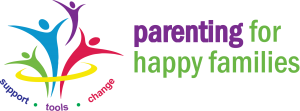Bullying – You hear about it. You talk about it. You see it. You feel it. Painstakingly, some of you have experienced it on a much deeper and more personal level than others.
Fortunately, anti-bullying campaigns, programs and resources are helping to increase the awareness of bullying impacting the rate that bullying is occurring. Your children are learning about bullies, what they should look for and what they should do in case they feel targeted or become a victim of a bully.
But what happens when the bully is not the kid from school?
What happens when the bully lives with your child?
What happens when the bully is you?
This may not be easy to hear, but have you ever stopped to consider your actions and words may be those of a bully?
Are you a bully?
I will let you decide.
How often do you:
- Yell at your child?
- Punish your child?
- Hit your child?
- Isolate your child?
- Boss your child around?
- Shame or guilt your child into behaving or acting certain ways?
- Talk negatively about your child in front of them to others?
- Make your child feel less than who they really are?
- Not accept your child for who they are?
As noted by parenting expert, Pam Leo, when a child, tween or teen or even other adults try to communicate their power and/or size through hurtful words and/or actions, we call them bullies. When a parent communicates to their child in the same way, we call that parenting with discipline.
Do you want a great relationship with your child? Do you want her to make good choices, to be more cooperative, to have great character? If so, I urge you to take a step back and evaluate how you communicate with your child.
If you are like many parents, you may be thinking,
“My kids push my buttons, make poor choices and have attitudes! They push me to my limit”.
I get it – After raising three children, I promise, I really do get it.
What I learned, however, is that it is YOUR CHOICE as to HOW you handle each situation. As I see it, you can either communicate with your child so he is willing and able to listen & learn OR you can communicate with an unhealthy, (mis)perceived power so he shuts down, shuts you out and learns what you really don’t want him to learn.
Negative and fearful patterns of communication may be quick and easy and can produce instant results but the impacts to your child and to your relationship are long-term.
Positive and healthy patterns of communication may initially take more thought, planning and patience but the results are staggeringly different yielding happy, thriving children, and great parent/child relationships with long-term benefits.
Join me as I launch my online Parent Village to help bring you and your family more peace, more joy and stronger relationships.
“Let’s parent through connection instead of coercion, through love instead of fear.”
Pam Leo

